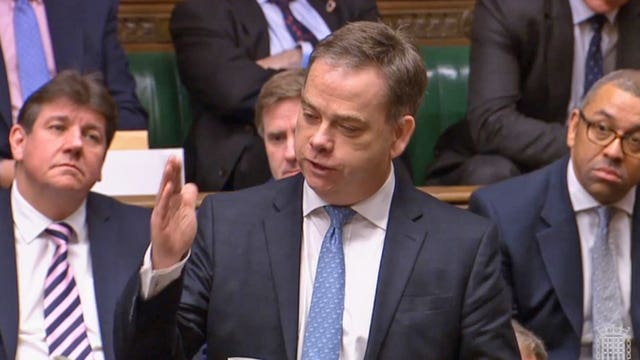
The Government has repatriated 1.3 million people back to the UK since the start of the coronavirus outbreak, a Foreign Office minister confirmed.
Nigel Adams told MPs that 200,000 British nationals have returned from Spain and 50,000 from Australia in the last month alone, with the Government also repatriating 19,000 stranded cruise ship passengers.
But MPs urged the Government to “learn lessons” from the process and proposed an inquiry into the Foreign Office’s repatriation efforts.
Meanwhile, shadow foreign secretary Lisa Nandy warned of a repeat of the Windrush scandal if non-UK nationals are left stranded abroad.
“There are some lessons to be learned from this situation,” Tory Anthony Mangnall said.

“I ask that the minister might consider that the Foreign Office performs a retrospective analysis of how we have repatriated British citizens and presents that report to this House so that we may be able to scrutinise it in future – because I think those shortcomings will need to be addressed.”
The SNP’s Foreign and Commonwealth Office spokesman Alyn Smith added: “Can the minister commit to an inquiry into the FCO handling of this issue in due course so that we can learn lessons for the future, not least focusing on the issue of de-funding of the FCO network, which has left it really at a loss that it didn’t have the capacity to cope?”
Mr Adams said “no doubt this will be something that we do look at in the cold light of day”, but that he believes his department has “done a pretty good job” so far.
“Of course we learn from it, every day we learn the lessons from such a huge operation,” he said in a statement in the Commons. “This is something we’ve never faced before, the nearest we’ve come to it is the Thomas Cook repatriation not too long ago.
“We learn lessons from that, but this is on a scale that is unimaginable. Never before have we had to repatriate this many people, over 1.3 million people have got come via commercial routes.”
Labour’s Ms Nandy asked what support is being provided to non-UK nationals trying to get back to the UK.
“Many that I’m in touch with are extremely vulnerable, others are NHS workers who are desperate to get back to the front line, but some of them have been told that they are at the back of the queue, while others have been told to contact other countries’ embassies for help,” she said.
“Now we were recently shamed by the treatment of those who made Britain their home and have lived and worked here for decades and we mustn’t allow this to happen again, so I hope he’ll take this opportunity to reaffirm our commitment to those non-UK nationals and guarantee them the same rights to return home.”
Mr Adams responded: “We are indeed prioritising British nationals on these repatriation flights, that’s our first priority. Those that are vulnerable and those that face the greatest risk, this might be because a country doesn’t have a health service that’s comparable to the NHS.
“But we always do our best to consider making space available for others where there are, not least those who are, as (Ms Nandy) mentions, key workers, in particular NHS, where we can, where possible.”
In response to Ms Nandy’s call for the Government to publish its statistics on the number of Britons who are stranded abroad, Mr Adams confirmed his “best estimate is around 50,000”.


Comments: Our rules
We want our comments to be a lively and valuable part of our community - a place where readers can debate and engage with the most important local issues. The ability to comment on our stories is a privilege, not a right, however, and that privilege may be withdrawn if it is abused or misused.
Please report any comments that break our rules.
Read the rules here